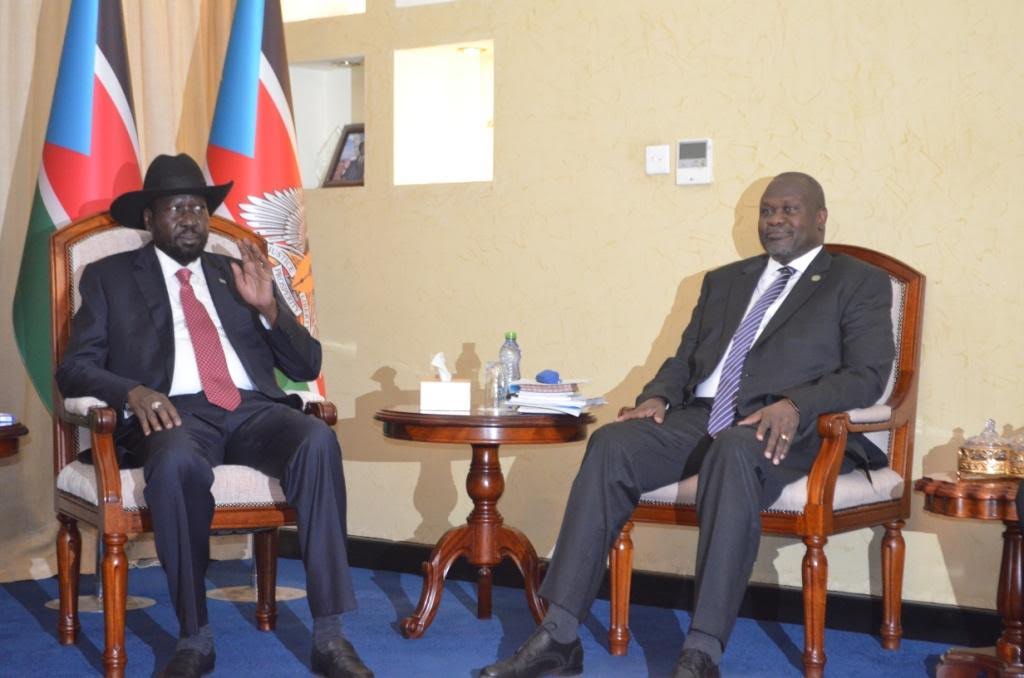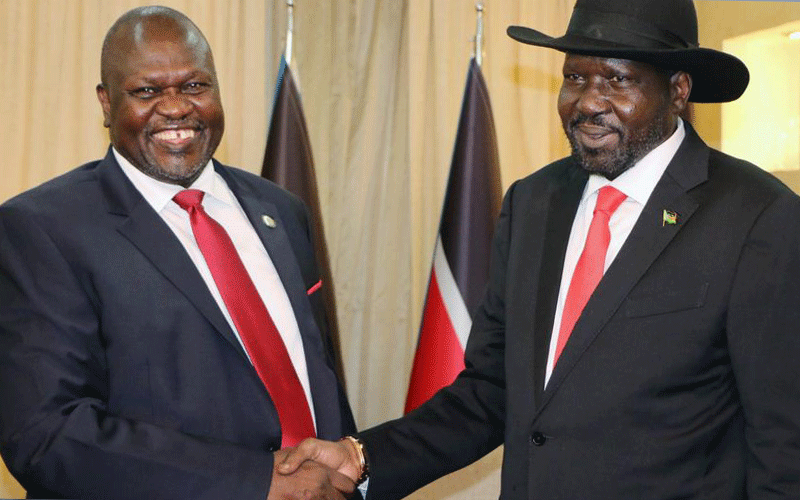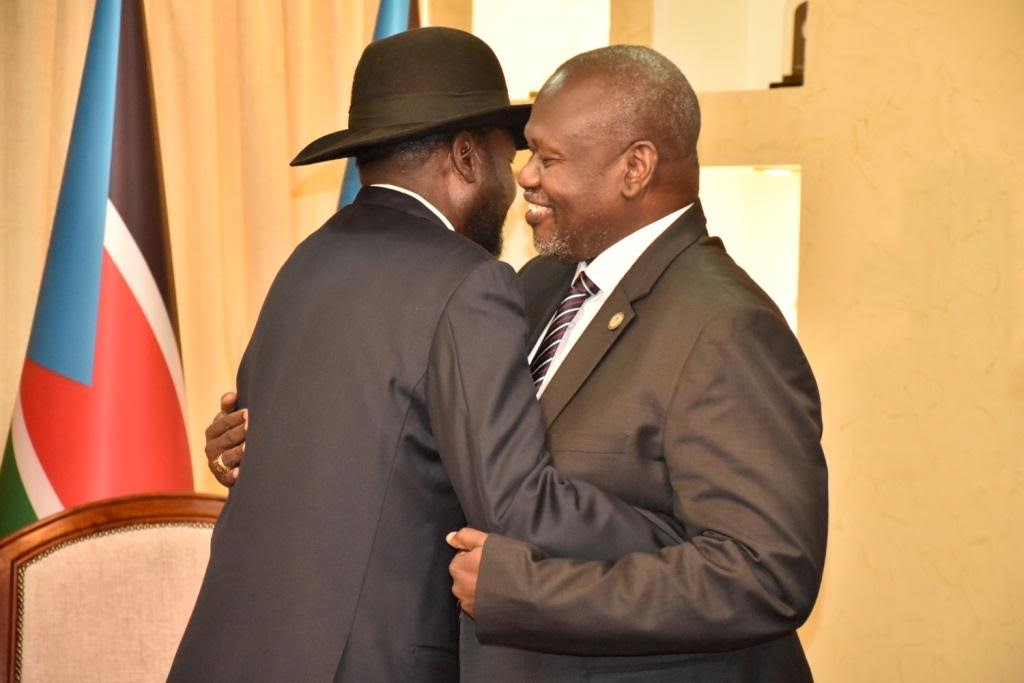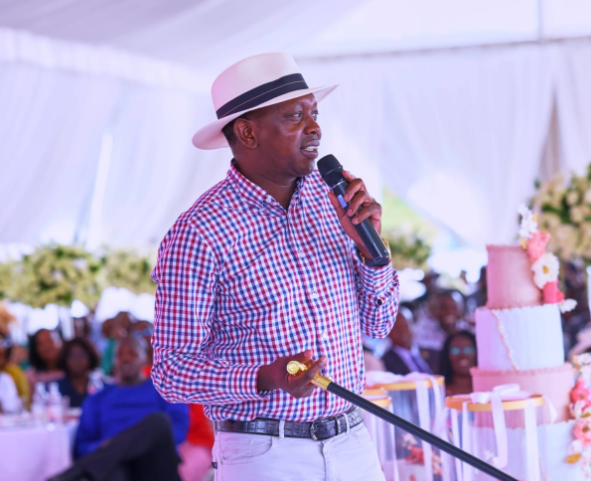Experts urge South Sudan leaders to rebuild trust, confidence to enhance peace
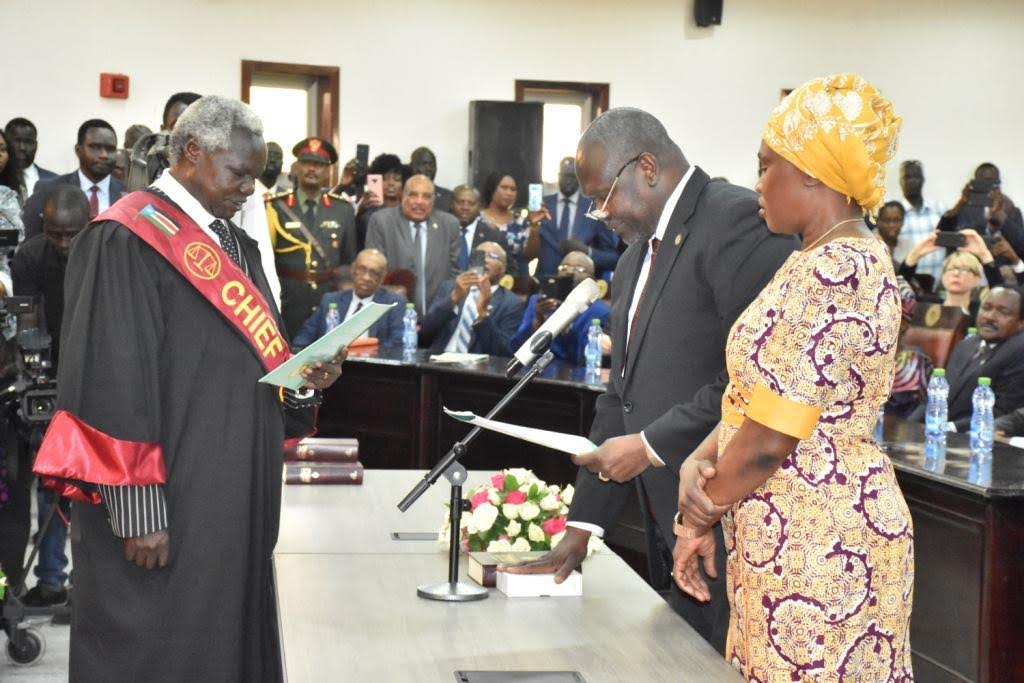
South Sudanese experts on Monday urged President Salva Kiir and his newly appointed first vice president Riek Machar to rebuild lost trust and confidence during the three-year transition period.
Kiir last week reappointed Machar, leader of the main-opposition group Sudan People’s Liberation Movement-In-Opposition (SPLM-IO) who had been fighting Kiir’s government since the outbreak of conflict in December 2013.
The two leaders are currently locked in a discussion on ministerial appointments within the transitional unity government after Kiir also reappointed two deputy presidents including Taban Deng Gai, James Wani Igga, and two other newcomers Rebecca Nyandeng De Mabior and Hussein Abdelbagi Akol.
Jacob Chol, professor of politics at University of Juba told Xinhua that the reappointment of Machar after he fled Juba during renewed violence in July 2016 augurs well for peace in the country.
The expert noted that the decision of the former warring parties to recently compromise on the issue of the number of the states, has helped push them forward to resolve pending issues within the 2018 revitalized peace agreement.
Chol added that when South Sudanese got their independence in 2011, the challenge faced by post-independence leadership was that they concentrated on state-building and forgot nation-building, which has been the major cause of the 2013 crisis.
“The nation are the communities, tribal groups, so when these tribal communities were not built through reconciliation, and empowerment, these nations when conflict began at the level of the leaders especially on their disagreement, these nations got themselves involved into trying to support their own leaders because they themselves were not empowered,” said Chol.
“The United Nations came in with a concept of building South Sudanese people as a state, and later on they came and said they wanted to build a state and they forgot the people. They realized that the state itself cannot be engineered without people being engineered,” he added.
Augustino Ting Mayai, political analyst at the Juba-based Sudd Institute, revealed that the power struggle between the two leaders in 2013 sparked the political crisis in South Sudan.
He added that Kiir and Machar should rebuild lost trust, and confidence to help restore peace in South Sudan.
James Okuk, lecturer of political science at the University of Juba, said the two leaders have decided to avoid going back to war and further sanctions by forming the government.
Okuk said Kiir and Machar have already violated the 2018 agreement, by failing to appoint cabinet on time.
“They have started the unity government with a violation of the agreement. For Kiir, to appoint one minister alone without a consensus of the others is a violation of the agreement. For Machar, to accept to take the oath of office without the security arrangement in place, particularly the necessary unified forces he is violating Chapter 2 of the agreement,” added Okuk.
“They have met the deadline by forming the government, but the deadline is not the solution. There are a lot of overwhelming issues, that are pending to be resolved which means the citizen is still anxious about whether things will be smooth or again they could be some kind of clashes here and there,” he added. (Xinhua)
